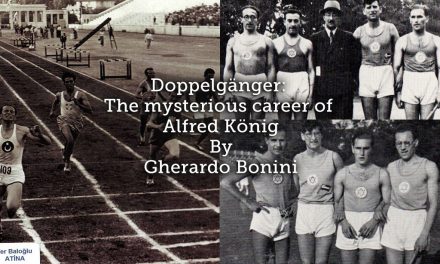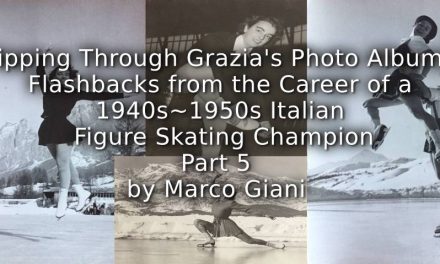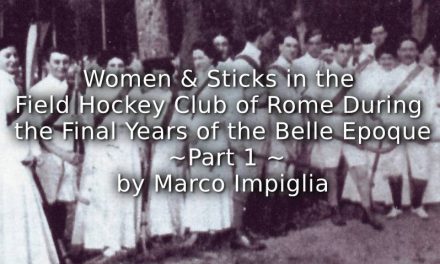One of the most exciting initiatives of this year has been the formal association negotiated between Playing Pasts and the Italian sport history society [Società italiana di storia dello sport or SISS], whose members have been and will be contributing extensively to the magazine. All the articles have been translated into English and can be found by linking to the following shortcut – bit.ly/2XhyDWw
The SISS webpage can be found at: https://www.storiasport.com/
Facebook: https://www.facebook.com/societaitalianastoriasport/
Instragram: @SISS_STORIADELLOSPORT
Below is a brief history of the SISS written by Gherardo Bonini
The systematic approach of historians to sports history and the understanding of the sport phenomenon developed in Italy with some delay compared to other European traditions, which for decades have included university chairs for the scientific study of sport.
A first crucial date can be considered 1989 when two prestigious academic journals such as Italia contemporanea and Ricerche storiche hosted some acute contributions which, in addition to presenting original perspectives that started from the sports phenomenon towards general insights of a historical and cultural order, also complained the laziness of historians in using pertinent research tools to obtain very interesting and innovative enrichments of knowledge from the study of the sports phenomenon.
In 1990, at the European University Institute in San Domenico near Fiesole, Professor Pierre Lanfranchi inaugurated series of successful seminars and conferences academics on the history of football and sport in Europe that aggregated an encouraging group of authoritative experts from Italy, not only holders of chairs of contemporary history and social sciences.
These events originated a primordial, but important, network of historians who, despite the persistent resistance of the academic world to open the doors to the specific investigation, found themselves very compact in contributing in 1995 to the foundation of the European Committee for Sport History (CESH). In 1996, not surprisingly, the first CESH congress was held in Rome.
Thanks to the support of some social and moral bodies, sporadically, some valuable works were able nevertheless to find an editorial outprint. Finally, on 10 January 2004, at the headquarters of Centro studi per l’Educazione fisica e le Attività sportive (CESEFAS) in Florence in Via Ripoli 88, twenty-five enthusiasts were able to form the Italian section of the CESH, i.e. the Società italiana di storia dello sport (SISS).
It is with honour that we remember, in rigorous alphabetical order, the names of the founding members : Ruggero Alcanterini (unfortunately deceased), Paolo Allegretti, Francesco Bonini, Gherardo Bonini, Aldo Capanni (unfortunately deceased), Franco Cervellati, Salvatore Finocchiaro, Marco Fittà ( unfortunately deceased) , Sergio Giuntini, Marco Impiglia, Riccardo Ingallina, Antonio Lombardo, Marcello Marchioni, Fulvio Massini, Valerio Monti, Franco Morabito, Adolfo Noto, Giuseppe Ocello, Gustavo Pallicca, Laura Pampaloni, Gianluca Punzo, Piergiorgio Renna, Angela Teja, Livio Toschi and Alberto Zanetti Lorenzetti.
The first elected President of SISS was Professor Antonio Lombardo, who held this position until November 2009. The management of this phase dealt mainly with three crucial issues. The first was the inclusion of SISS as a term of reference and as promoting society for the history of sport in Italy, in the dual function of attraction and stimulation for teaching and spreading sports culture. The second aspect concerned the visibility and the need for expansion and diffusion of SISS for the potential affiliation of further members and for the exploitation of until then unrevealed scientific resources. The third aspect was the necessary connection of SISS to the political government of Italian sport represented by CONI.
During this phase, above all Florence hosted the holding of some general assemblies, in which, although the modality of a real congress was lacking, the members could exchange ideas and communicate their ongoing projects.
In 2010, Professor Angela Teja was elected as President of SISS. The expansion continued, also thanks to the dissemination of bulletins and a more continuous use of informatical linking tools.
In 2011 the first official Congress Donne e sport dell’Unità d’Italia (Women and sport in a United Italy) took place at the Museo del Risorgimento in Milan. In 2012 the first of SISS periodical books (Quaderni della SISS) was published, a collection of the members’ studies, which were followed by other noteworthy releases. Two moments of great impact were held in 2014 and in 2015 by the two conferences dedicated to the presence of sport during, respectively, World War I and World War II. They were held in Florence on 9 and 10 May 2014 and at Marzabotto, ‘martyr city’ of Resistenza, on 18 April 2015. These two conferences gained a strong success, both in terms of quantity of works submitted and for the higher standard of the contributions.
In March 2015 Professor Andrea Claudio Galluzzo was elected President of SISS. Basically, the work of rejuvenating and changing the small, but efficient, organizational chart of SISS has continued, with an ever increasing attention to the tools of social connection.
SISS benefited the important support of Lancillotto & Nausica magazine that a forerunner in Italy, since the 1980s, of research on the sports phenomenon, with particular attention to social, cultural and artistic dynamics. In 2017, thanks to a new fruitful partnership between Italian and foreign universities, another important editorial publication named Storia dello sport. Rivista di storia contemporanea was launched, whose first edition issued in 2018.
In March 2019 Professor Francesco Bonini was elected President of SISS. The collaboration and participation of members in radio, television and social networks has been increased. The site benefited a new and important restructuring to be an increasingly useful tool for participation among the members, but also for its impact on the cultural debate on sport and culture. The informatic tool is now an unavoidable element of presence and real impact. The launch of some commissions is being studied which, on the basis of sectorial and specific expertise, may increase the incidence of SISS within universities and the cultural domain.





